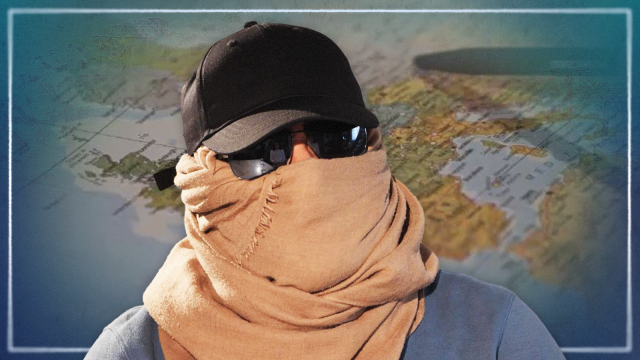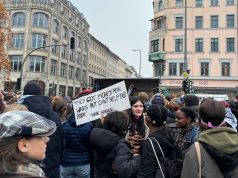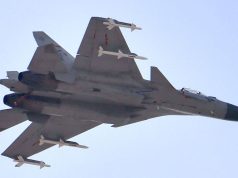“You can’t do this job without a gun. You have to carry a gun,” the man opposite me calmly explains.
“When there is disagreement, they come to you at night and empty two bullets in you and then disappear.”
The high-risk job he’s describing isn’t in the military or the police – he is a people smuggler.
Last year, he made more than £800,000 selling migrants spots in dinghies taking them from France to the UK.
He’s agreed to tell me more about the shadowy industry on the condition that we disguise his identity.
“My job is to send people from Dunkirk to Britain. From April till November, the workload is very good and the demand for Britain is high,” Taha says.
“I launched 12 dinghies last year and each dinghy had 50 or 45 migrants in them. Each person £1,500 so, thank God, I earned good money.”
Watch special programme on migration crisis with Yalda Hakim on Sky News from 9pm tonight
A huge map of Europe is rolled out on the table in front of us.
This is his marketplace, the area where he drums up trade.
Business is booming, more than 11,000 people have paid smugglers like Taha to cross the Channel to the UK so far this year, often packing into rickety dinghies with too few life jackets.
“How do you get your boats to France?” I ask.
“Turkey to Austria and to Germany and then from Germany to France,” he says, pointing at the route on the map.
Taha is a cog in a much larger smuggling network.
He says other people oversee logistics, sending dinghies from Turkey to Germany and storing them in warehouses to be distributed to the Netherlands, Belgium, and France.
Taha’s business is focused on the crossing itself and begins when the migrants get to France.
Read more of Sky News’ coverage on the migration crisis:
On the ‘Train of Death’: Electric shocks, beatings and brandings
Poll reveals what people really think about immigration
He says they usually arrive in Dunkirk with the help of friends or relatives.
Their crossing fee is deposited with a kind of smugglers’ travel agent.
Once they arrive safely in Britain, the money is released to agents like Taha.
But the cash isn’t guaranteed.
The boats cost 13,000 to 14,000 euros, so if one sinks or is slashed by French police then he takes the financial hit.
He’s also responsible for the people on board.
More than 250 have disappeared crossing the Channel since 2014, according to figures from the International Organization for Migration.
A seven-year-old girl is among those who have drowned this year.
‘If we pressure people, we are killers’
Taha doesn’t pretend the route is safe.
“I have not had anyone dying on my watch but there were a few dinghies that capsized, and some migrants drowned. This passage is a dangerous journey,” he says.
Numerous governments, including the UK, have blamed smugglers for the deaths.
“The British government says that the smugglers are killing people… [but] we see ourselves as rescuers and not killers because the people go of their own volition, and we can’t pressure people.
“If we pressure people to go, then we are killers,” he says.
“There are dangers for us too.”
Read more:
Hunting a people smuggling kingpin
See what the UK’s political parties say about migration
‘They use knives and AK47s’
Violence is expected when you work in organised crime but turf wars over the lucrative crossings has made the situation more dangerous.
“There are quarrels between the smugglers over passengers, and this descends into fights with someone getting wounded and another killed,” Taha says.
“They use pistols, knives and AK47s.”
“Has anyone come for you?” I ask.
“For sure, a hundred times. They came and fired at us, and we fired back.
“People from our side were wounded and from their side were wounded too and the police arrived and that was when the fighting ended,” he says.
“[They’d been] fighting with Kalashnikovs, M4s, pistols and all other guns.”
“Is this job going to kill you in the end?” I ask.
“For sure. I have made peace with that,” he replies.
Calmly, he agrees his job is “a death sentence” and it’s just a matter of time before he gets a bullet in the head.
Despite the risk, after years working his way up, he refuses to walk away.
“I can’t give up on this job because that is what I know. I want to give up but can’t stay away from this work,” he says.
So, while the police and politicians try to stop people boarding the boats, smugglers like Taha work on staying one step ahead – promising to find new routes if old ones are closed, willing to risk their lives for a stake in this multi-billion-pound trade.






















